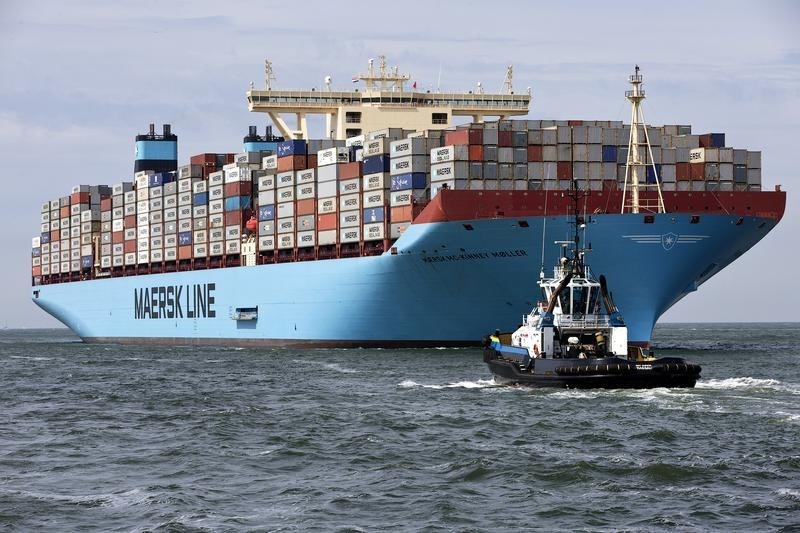Mississippi River Reopens, Freeing Over 1,000 Stuck Barges By Bloomberg

(Bloomberg) — The U.S. Coast Guard has reopened the Mississippi River to maritime traffic, ending a shutdown that stranded more than 1,000 barges on the key conduit for agriculture exports.
The river reopened as of 9 a.m. Central Time on Friday, according to the Coast Guard, providing relief to the queue of 62 vessels and 1,058 barges stranded on the north and south sides of the Interstate 40 Hernando DeSoto Bridge near Memphis, Tennessee. The waterway had been closed since Tuesday after a crack was found in the truss of the bridge.
“Based on information provided to us by the Tennessee Department of Transportation, the Coast Guard has determined that transit under the I-40 bridge is safe for maritime traffic,” said Coast Guard Capt. Ryan Rhodes, Captain of the Port of Memphis.
The crack in the bridge, found during a routine inspection, stranded barges and cut off the biggest route for U.S. agricultural exports when the critical waterway is at its busiest. Covered barges full of grain and soy float from U.S. farm country to terminals in the Gulf of Mexico, while crude oil, refined products and imported steel also travel through sections of the waterway.
Priorities for vessel traffic will be, in order: Department of Defense, red flag fuel barges, passenger boats, southbound cargoes and northbound cargoes, according to Lt. Mark Pipkin of the Coast Guard’s Sector Lower Mississippi River.
The reopening will be “big help for American agriculture,” said Dan Basse, president of Chicago-based consultants AgResource, adding that he sees river operations returning to normal by mid next week.
“The record large U.S. summer corn export program is not threatened,” he said in an interview. “Should not be any big snags as long as two-way traffic can persist.”
The New Orleans Port Region moved 47% of waterborne agricultural exports in 2017, according to the U.S. Department of Agriculture. The majority of these exports were bulk grains and bulk grain products, such as corn, soybeans, animal feed and rice. The region also supports a significant amount of edible oil exports, such as soybean and corn oils.
Of agricultural supplies that floated on barges north of Memphis, about 84% was corn and about 13% was soybeans, according to Mike Steenhoek, executive director of the Soy Transportation Coalition, citing USDA data. Overall shipments of corn and soy during the week ended May 8 were 18% higher than a year ago.
“Any time you have a halt to the flow of barges, there will inevitably be another ‘clog’ that occurs downriver,” Bevan Everett, risk management consultant and grains market analyst at StoneX, adding that at most the delay in movement may extend through the weekend.
“Since traffic is going to be open both ways, by Monday you probably won’t be able to tell this halt happened,” Everett said.
(Adds Coast Guard updates, analysts comment from third paragraph.)
©2021 Bloomberg L.P.

